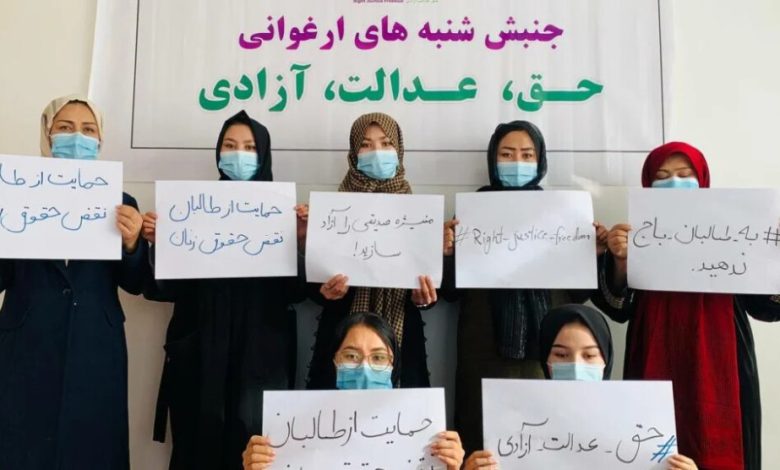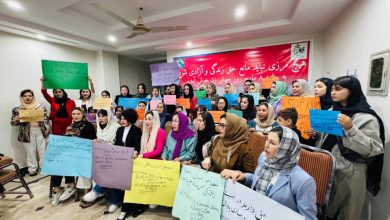
The Purple Saturdays movement calls for global solidarity to save Afghan women
The Purple Saturdays movement, a women’s protest group in Afghanistan, has called for the solidarity and unified voice of the international community to save Afghan women from their “slow death” situation.
In a statement released on Wednesday, April 2, the movement emphasized that millions of Afghan girls and women have been deprived of the right to education, employment, and free living for the past three and a half years.
According to the statement, Afghan women have been living under the shadow of fear, systematic oppression, and despair during this period. The movement described the current situation not only as a violation of women’s basic freedoms and rights but also warned that these restrictions have led to a significant rise in mental illnesses, depression, and hopelessness, especially among young girls and women.
The Purple Saturdays movement, referring to these conditions as a “silent death,” has called on the international community, human rights organizations, and global activists to raise their voices in protest and launch pressure campaigns, fulfilling their moral responsibility toward Afghan women. Part of the statement reads: “Silence in the face of this humanitarian disaster is complicity with oppression. The world must wake up.”
The movement also pointed to the issuance of dozens of restrictive decrees by the Taliban against women, which over the past three and a half years have banned women from participating in educational, professional, social, and even recreational activities. Under these laws, Afghan women have been deprived of the right to study at universities, work in government and non-government organizations, enter parks, and travel without a male guardian.
The Purple Saturdays movement, which had previously organized symbolic protests and used the color purple as a symbol of women’s resistance, stated that the continuation of this oppression not only threatens the current generation but also the future of Afghanistan.
The movement has called on the United Nations and influential countries to use political and economic leverage to pressure the Taliban into canceling their anti-women decrees.
While the Taliban claim that their laws are based on “Islamic Sharia,” international organizations and human rights experts consider these restrictions a flagrant violation of women’s basic rights and international treaties.
